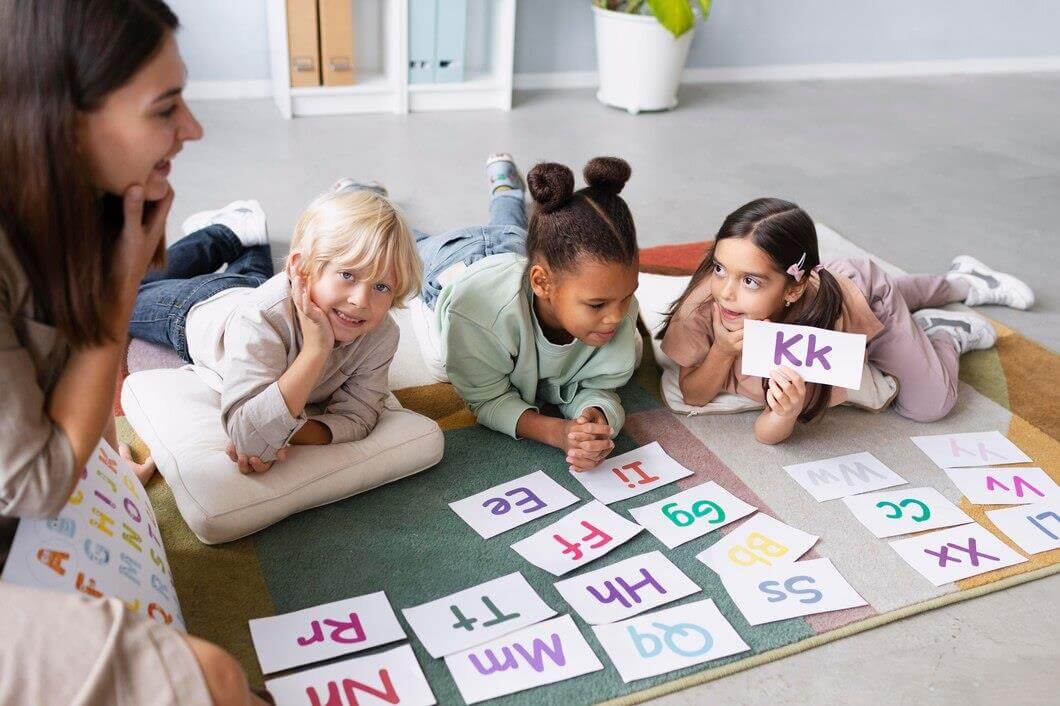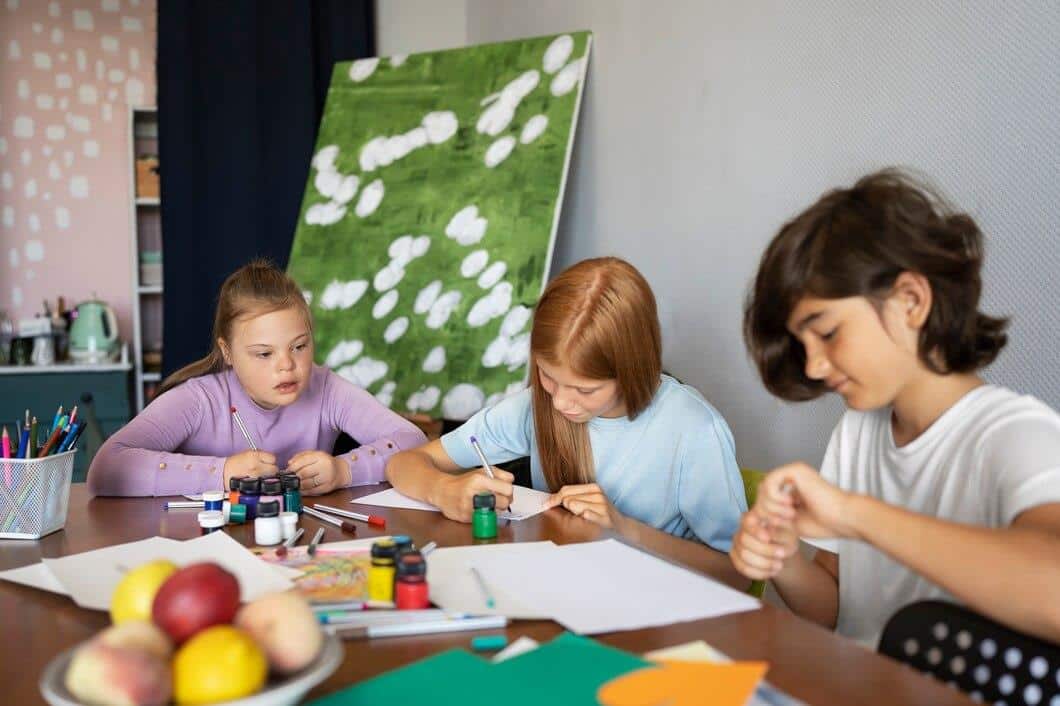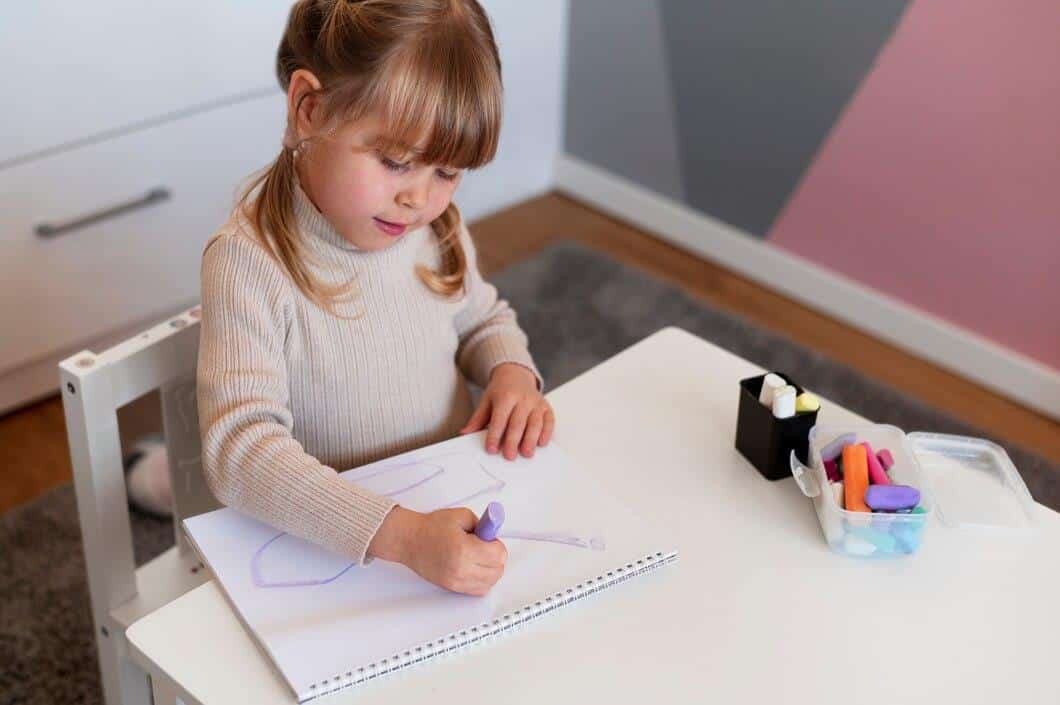In today’s rapidly evolving educational landscape, pre-k learning has become a critical component in setting the stage for a child’s future academic success. As parents and caregivers in Colorado Springs, finding the right pre k learning center can make all the difference in nurturing your child’s love for learning and building a strong literacy foundation. In this blog post, we’ll explore the importance of pre k learning programs, highlight some of the top prekindergarten learning centers in Colorado Springs, and discuss how these learning centers are revolutionizing early childhood education in Colorado Springs.
Why Pre-K Learning Programs Matter
Cognitive Development
Pre k learning programs play a vital role in a child’s cognitive development. These programs are designed to provide young children with a structured learning environment that fosters curiosity, creativity, and a love for learning. By engaging in age-appropriate activities and experiences, children develop essential cognitive skills such as:
- Problem-solving
- Critical thinking
- Memory retention
- Attention span
- Language acquisition
Research has consistently shown that children who attend high-quality pre k learning programs have better cognitive outcomes in later years. They tend to perform better academically, have higher IQs, and are more likely to graduate from high school and attend college.
Social-Emotional Development
In addition to cognitive development, pre k learning programs also support children’s social-emotional growth. These programs provide opportunities for children to interact with their peers, learn social skills, and develop emotional intelligence. Through play and structured activities, children learn to:
- Share and take turns
- Communicate effectively
- Manage their emotions
- Empathize with others
- Resolve conflicts
Developing strong social-emotional skills in early childhood is crucial for future success in school and life. Children who attend pre k learning programs are more likely to have positive relationships with peers and adults, exhibit fewer behavioral problems, and have higher self-esteem.
Preparation for Kindergarten
One of the primary goals of pre k learning programs is to prepare children for kindergarten and beyond. By attending a high-quality pre-kindergarten program, children gain the skills and experiences necessary to succeed in a formal school setting. They learn to:
- Follow routines and schedules
- Work independently and collaboratively
- Participate in group activities
- Communicate their needs and ideas
- Engage in basic academic skills (e.g., counting, letter recognition)
Children who enter kindergarten with a strong foundation in these areas are more likely to thrive academically and socially. They are better equipped to handle the challenges and expectations of a structured classroom environment.
Top Pre-K Learning Center in Colorado Springs
When searching for “pre k learning centers near me,” Colorado Springs parents are fortunate to have access to a wide range of exceptional options. Let’s take a closer look at the top pre k learning center in the area:
- Young Scholars Academy: Young Scholars Academy is an exceptional pre k learning center that offers a nurturing and engaging environment for young children. With a focus on developing a love for learning, their programs are designed to support each child’s unique needs and interests. Some key features of Young Scholars Academy include:
- Nationally accredited by the National Association for the Education of Young Children (NAEYC)
- Family-owned and operated for over 20 years
- Experienced and dedicated teachers
- Creative Curriculum that is developmentally appropriate and personalized
- Enriching environments that inspire discovery, creativity, and friendships
- Strong emphasis on kindergarten readiness and future academic success
Young Scholars Academy offers a range of programs for children ages 6 weeks to 5 years, including infant care, toddler classrooms, preschool, pre-kindergarten, and junior kindergarten. They also provide before and after school programs for school-age children. With a commitment to excellence and a passion for early childhood education, Young Scholars Academy is a top choice for Colorado Springs families.
Building Literacy Skills in Pre-K
Language-Rich Environments
One of the key ways that pre k learning centers support literacy development is by providing language-rich environments. These environments are designed to immerse children in oral and written language throughout the day. Some examples of language-rich experiences in pre k classrooms include:

- Storytime: Teachers read aloud to children regularly, exposing them to a variety of genres, vocabulary, and narrative structures.
- Conversations: Children engage in meaningful conversations with teachers and peers, practicing their oral language skills and learning to express their thoughts and ideas.
- Print-rich surroundings: Classrooms are filled with labels, signs, books, and other print materials that help children make connections between spoken and written language.
By surrounding children with language in multiple forms, pre k learning centers lay the foundation for future reading and writing success.
Phonological Awareness
Another critical component of early literacy development is phonological awareness – the ability to recognize and manipulate the sounds of language. Pre k learning centers incorporate a variety of physical activities and experiences that promote phonological awareness, such as:
- Rhyming games and songs
- Syllable clapping and counting
- Identifying initial and final sounds in words
- Blending and segmenting sounds to create words
As children develop phonological awareness skills, they are better prepared to understand the relationship between letters and sounds, which is essential for learning to read and write.
Emergent Writing
Pre k learning centers also support children’s emergent writing skills – the early stages of writing development that precede conventional writing. Teachers provide opportunities for children to experiment with writing in a variety of ways, such as:

- Scribbling and drawing
- Making letter-like shapes
- Copying letters and words
- Dictating stories or ideas for teachers to write down
By exploring writing in a safe and supportive environment, children begin to understand the purpose and conventions of written language. They also develop fine motor skills and hand-eye coordination, which are necessary for future writing success.
The Benefits of Pre-K Learning Centers
Academic Success
Research has consistently shown that attending a high-quality pre k learning program can have significant long-term benefits for children’s academic success. Children who attend pre k are more likely to:
- Perform better on standardized tests in elementary school
- Be placed in gifted and talented programs
- Graduate from high school
- Attend and complete college
These academic benefits are particularly pronounced for children from low-income families and those who are English language learners. By providing a strong educational foundation in the early years, pre k learning centers can help close achievement gaps and promote equity in education.
Economic Benefits
Investing in early childhood education also yields significant economic benefits for individuals and society. Some of these benefits include:

- Higher lifetime earnings for individuals who attend pre k
- Reduced costs associated with remedial education, grade retention, and special education services
- Lower rates of crime and incarceration
- Increased tax revenue and economic productivity
Studies have shown that every dollar invested in high-quality early childhood education can yield a return of up to $16 in economic benefits. By supporting pre k learning centers, communities can create a more prosperous and equitable future for all.
Choosing the Right Pre-K Learning Center
With so many pre k learning centers near you, it can be challenging to choose the right one for your child. Here are some factors to consider when making your decision:
- Accreditation: Look for a pre-k learning center accredited by a reputable organization, such as the National Association for the Education of Young Children (NAEYC). Accreditation ensures that the center meets high standards for quality and safety.
- Curriculum: Choose a pre k learning center that offers a research-based, developmentally appropriate curriculum. The curriculum should be aligned with state standards and focus on the whole child, including cognitive, social-emotional, and physical development.
- Teacher qualifications: Ensure that the pre k learning center employs qualified, experienced teachers who are passionate about early childhood education. Teachers should have the necessary training and certifications to work with young children.
- Family involvement: Look for a pre k learning center that values family involvement and encourages parents to be active participants in their child’s education. The center should provide regular communication and opportunities for parent-teacher conferences.
- Learning environment: Visit the pre k learning center in person to get a sense of the learning environment. Look for a clean, safe, and nurturing space that is designed to promote exploration and learning. The classrooms should be well-equipped with age-appropriate materials and resources.
By taking the time to research and visit different pre k learning centers, you can find the right fit for your child and set them on the path to a lifetime of learning and success.
Conclusion
Pre k learning centers near Colorado Springs are playing a vital role in building a strong literacy foundation for young children. By providing age-appropriate hands-on activities, experienced teachers, and a nurturing learning environment, these centers are helping children develop the skills and experiences necessary for future academic success.
If you’re a parent or caregiver in Colorado Springs, we encourage you to explore the many exceptional pre k learning programs available in your area. By investing in early childhood education, we can create a brighter future for our children, communities, and society. Let’s work together to ensure that every child has access to the high-quality pre k learning experiences they need to thrive.
Frequently Asked Questions
What is the importance of pre k learning programs?
Pre k learning programs play a crucial role in a child’s cognitive, social, and emotional development. These programs provide a structured learning environment that fosters curiosity, creativity, and a love for learning. Children who attend high-quality pre k programs are more likely to succeed academically in later years. They also have better social-emotional well-being, and be better prepared for kindergarten.
How do pre-k learning centers help build a strong literacy foundation?
Pre k learning centers support literacy development by providing language-rich environments, promoting phonological awareness, and encouraging emergent writing skills. Language-rich environments immerse children in oral and written language through story time, conversations, and print-rich surroundings. Phonological awareness activities help children recognize and manipulate the sounds of language, while emergent writing experiences allow children to experiment with writing in various ways.
What are the long-term benefits of attending a pre-k learning program?
Children who attend high-quality pre k learning programs are more likely to perform better on standardized tests, be placed in gifted and talented programs, graduate from high school, and attend and complete college. Additionally, investing in early childhood education yields significant economic benefits, such as higher lifetime earnings, reduced costs associated with remedial education and crime, and increased tax revenue and economic productivity.
What factors should parents consider when choosing a pre-k learning center?
When choosing a pre-kindergarten learning center, parents should consider factors such as accreditation, curriculum, teacher qualifications, family involvement, and the learning environment. It’s essential to look for a center that is accredited by a reputable organization, offers a research-based and developmentally appropriate curriculum, employs qualified and experienced teachers, values family involvement, and provides a clean, safe, and nurturing learning environment.
How can investing in early childhood education benefit society?
Investing in early childhood education can create a more prosperous and equitable future for all by promoting academic success, reducing achievement gaps, and yielding significant economic benefits. Studies have shown that every dollar invested in high-quality early childhood education can yield a return of up to $16 in economic benefits, such as increased tax revenue and economic productivity, and lower rates of crime and incarceration.


 Sight words
Sight words